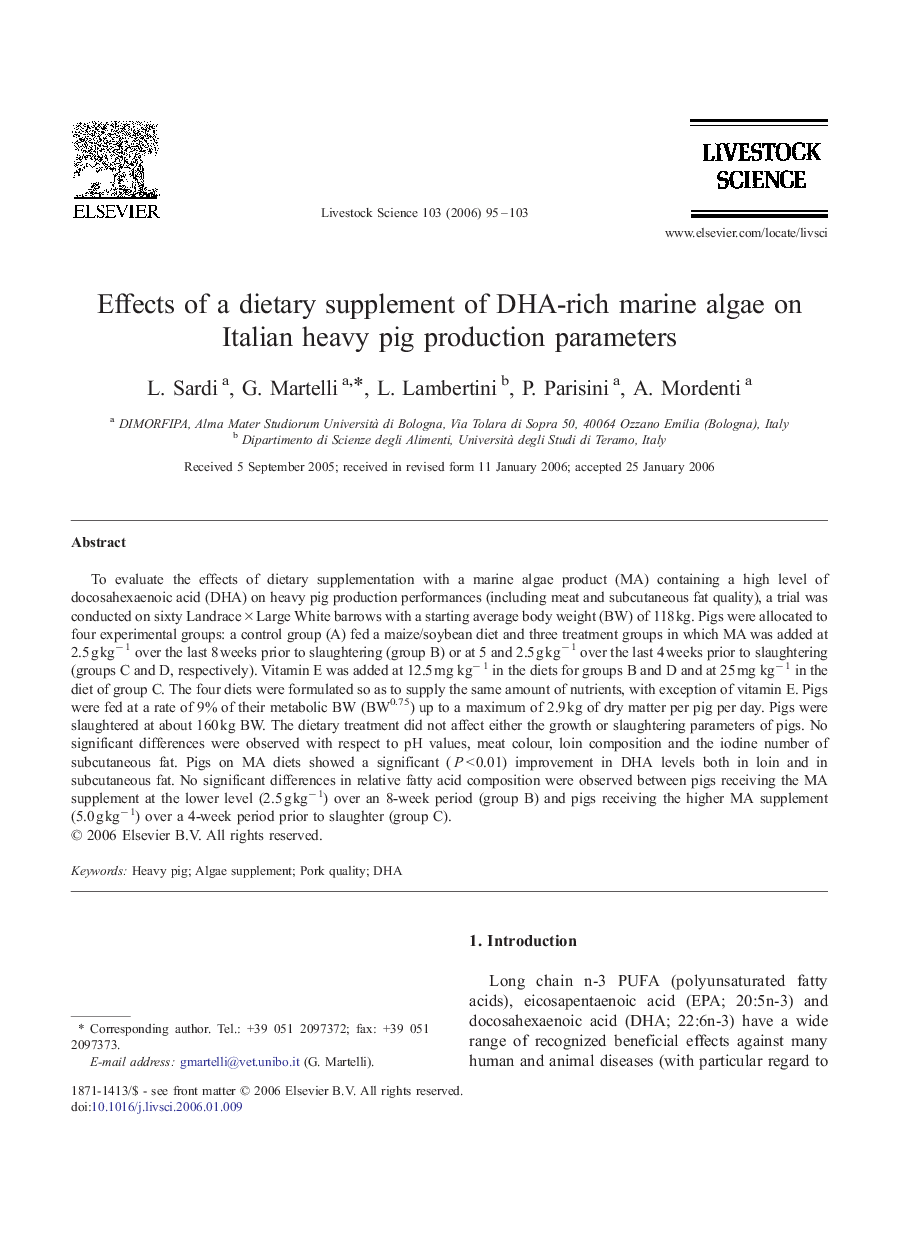| Article ID | Journal | Published Year | Pages | File Type |
|---|---|---|---|---|
| 2449214 | Livestock Science | 2006 | 9 Pages |
To evaluate the effects of dietary supplementation with a marine algae product (MA) containing a high level of docosahexaenoic acid (DHA) on heavy pig production performances (including meat and subcutaneous fat quality), a trial was conducted on sixty Landrace × Large White barrows with a starting average body weight (BW) of 118 kg. Pigs were allocated to four experimental groups: a control group (A) fed a maize/soybean diet and three treatment groups in which MA was added at 2.5 g kg− 1 over the last 8 weeks prior to slaughtering (group B) or at 5 and 2.5 g kg− 1 over the last 4 weeks prior to slaughtering (groups C and D, respectively). Vitamin E was added at 12.5 mg kg− 1 in the diets for groups B and D and at 25 mg kg− 1 in the diet of group C. The four diets were formulated so as to supply the same amount of nutrients, with exception of vitamin E. Pigs were fed at a rate of 9% of their metabolic BW (BW0.75) up to a maximum of 2.9 kg of dry matter per pig per day. Pigs were slaughtered at about 160 kg BW. The dietary treatment did not affect either the growth or slaughtering parameters of pigs. No significant differences were observed with respect to pH values, meat colour, loin composition and the iodine number of subcutaneous fat. Pigs on MA diets showed a significant (P < 0.01) improvement in DHA levels both in loin and in subcutaneous fat. No significant differences in relative fatty acid composition were observed between pigs receiving the MA supplement at the lower level (2.5 g kg− 1) over an 8-week period (group B) and pigs receiving the higher MA supplement (5.0 g kg− 1) over a 4-week period prior to slaughter (group C).
